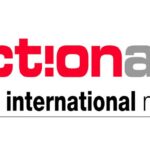The Accountability Lab Nigeria has said that it is collaborating with the Women’s Rights Advancement and Protection Alternative (WRAPA), Federal Ministry of Women Affairs, and other stakeholders to implement the ‘Improving Electoral Integrity and Accountability Project’ in the country.
The Communications Manager for Accountability Lab Nigeria Office, Suleiman Murkhtar, said this on Tuesday in Abuja at a strategic engagement with media executives.
- Gender inclusion in governance in 2023
- Oil and Gas extraction: Forum demand women consent rights, accountability
“We are currently working with WRAPA and the Federal Ministry of Women Affairs, to see how we can popularize the National Gender Policy (NGP) that was just recently approved by the Federal Executive Council (FEC) in March this year.
“The revise version of the documents was actually approved in 2021. So, what we are doing right now is to see how we can put it out there for people to know the contents and how they can domesticate it in various MDAs and different government parastatals,” Murkhtar said.
When asked on how the forum would monitor the implementation of the project, he said that from the CSO perspective, they can only collaborate with the federal government, and relevant organizations to ensure that this policy don’t die on arrival.
He said, “So we remain poised to ensure that we can make as much awareness as we can to ensure that it is actually adopted and adapted by various MDAs in the country to ensure inclusivity and collaboration among different stakeholders.”
Also, the Programmes and Leaning Manager, Accountability Lab Nigeria, Ehi Idakwo-Pam, said that the initiative is supported by MacArthur Foundation.
She said, “The partnership was aimed at ensuring “a strategic alignment and public buy-in on the provisions and popularization of the Revised National Gender Policy within stations and in public media enlightenment for NGP adoption.
“A knowledge enhancement activity; ‘Know your NGP’ targets, key stakeholders from identified media organizations to engage Media leaders for a knowledge update session on the policy recommendations and stipulations for gender equity, accountability, and electoral integrity.”
On her part, the Secretary General of WRAPA, Hajiya Saudatu Mahdi, expressed worry over the high rate of corruption that has bedeviled the country.
She said, “Corruption has eaten deep into the fabric of Nigerian society. Owing to this consensus the Buhari administration won the general elections when a ruling party was voted out and elections were used to transfer power.
“However, corruption remains in several spheres of governance in Nigeria five years after. Election promises remain unfulfilled while concerted government efforts and citizen-led campaigns have not dislodged deeply entrenched corruption that poses barriers to access, inclusion and accountability.”
Mahdi added that the ‘Improving Electoral Integrity and Accountability Project’ was premised on democratic principles, which suggests that to reap and sustain the gains of democracy, deliberate actions must be taken to ensure the inclusion of women, youths and other marginalized groups.
“WRAPA also believes that defining and promoting the quality and sustained participation of marginalized constituencies entails deliberate responses to women and Gender Equality and Social Inclusion (GESI) concerns in Nigeria’s ongoing constitutional and electoral review processes.

 Join Daily Trust WhatsApp Community For Quick Access To News and Happenings Around You.
Join Daily Trust WhatsApp Community For Quick Access To News and Happenings Around You.
